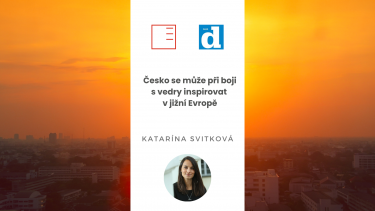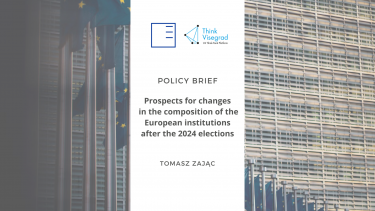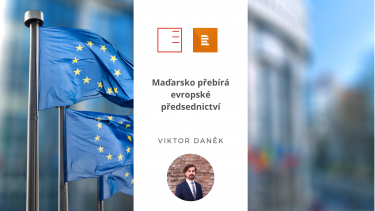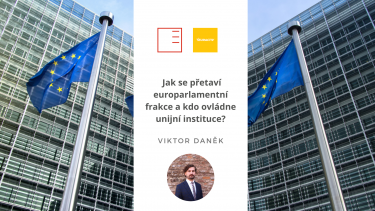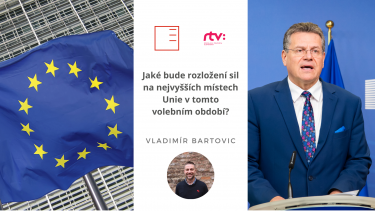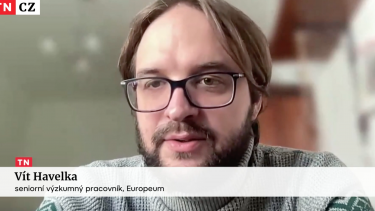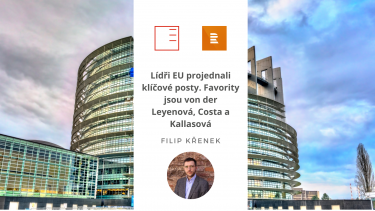Deník.cz | Czech Republic can find inspiration in southern Europe in the fight heatwaves
Czech cities could take inspiration in combating high temperatures from cities in southern Europe, such as Barcelona, which has effective plans and is well-adapted to extreme heat. Barcelona boasts over two hundred climate shelters in publicly accessible institutions like museums, galleries, offices, and libraries, providing drinking water, air conditioning, and informational services. According to Katarína Svitková, an Associate Research Fellow at EUROPEUM Institute, Czechia lacks action plans and responds to heat only at the last minute. Preparedness for tropical days is crucial for protecting the population, especially seniors and young children, for whom summer days are the most demanding.
Show more
Policy Brief | Prospects for changes in the composition of the European institutions after the 2024 elections
This policy brief analyses the prospective changes in the European Parliament (EP) composition following the 2024 elections. It reflects on the evolving political environment since 2019, highlighting shifts in party dynamics within the EP, such as the fragmentation of traditional party dominance and the emergence of new political alignments. Additionally, it explores potential reconfigurations in top EU positions post-elections and examines ongoing concerns regarding geographical representation within EU institutions, particularly the European Commission. Writes Tomasz Zając from the Polish Institute of International Affairs (PISM).
Show morePolicy Brief | Vyhlídky na změny ve složení evropských institucí po volbách v roce 2024
Publikace analyzuje možné změny ve složení Evropského parlamentu po volbách v roce 2024, zamýšlí se nad vývojem politického prostředí od roku 2019 a poukazuje na posuny ve stranické dynamice, jako je roztříštění tradiční stranické dominance a vznik nových politických uskupení. Kromě toho zkoumá možné změny v obsazení vrcholných pozic v EU po volbách a zabývá se přetrvávajícími obavami ohledně geografického zastoupení v institucích EU, zejména v Evropské komisi. Píše Tomasz Zając z Polského institutu mezinárodních vztahů (PISM).
Show moreTA3 | Questions about the Hungarian Presidency
Make Europe Great Again is the motto of the Hungarian Presidency of the Council of the European Union. Hungary has set seven priorities, including fighting illegal migration and strengthening European defense. But the next six months raise many questions about the direction the Union will take under Budapest's leadership and what it will mean for Ukraine. Žiga Faktor, deputy director and head of the Brussels office of EUROPEUM Institute, explains the situation for Slovak TV TA3.
Show more
WhatNews | Cities are expecting another heat wave this year. What is Prague doing to keep us from getting baked?
The average temperature in the Czech Republic has increased by 2.2 degrees Celsius since the 1960s. As a result of climate change, the country is suffering more frequent weather extremes: torrential rain, drought and heat. Heat waves are particularly severe in heat islands that form in cities. Prague wants to rapidly reduce greenhouse gas emissions, add greenery and water features. Will it be enough? Katarina Svitková, an Associate Research Fellow at EUROPEUM Institute gives examples to WHAT news on how Barcelona is adapting to the heat.
Show more
ČRo Plus | Hungary takes over the European Presidency. How will the country considered to be the EU's troublemaker handle it?
Hungary took over the EU presidency today, giving Budapest, perceived as a troublemaker in the European institutions, a different role for six months. At the same time, Prime Minister Viktor Orbán announced over the weekend the formation of a new alliance in the European Parliament with the Czech ANO movement and the Freedom Party of Austria. Viktor Daněk, deputy director of EUROPEUM Institute, comments on the formation of the new alliance.
Show moreEuractiv.cz | Post-election reshuffles. How will the European Parliament factions transform and who will dominate the EU institutions?
The key issues for the new term in the EU do not end with the European elections. Forces in European Parliament continue to shift depending on factions, while leaders select institutional leadership. How will the elections and the composition of the European Parliament influence the future functioning of the EU? And who will lead it? Viktor Daněk, Deputy Director of EUROPEUM Institute, answered these questions for Euractiv.cz.
Show moreRTVS | What will be the balance of power at the top positions of the Union?
After the European Parliament elections, government leaders of the EU member states must agree on the leadership of the European institutions. The agreement must be finalized by the end of the month. Vladimír Bartovic, President of EUROPEUM Institute, answered questions about the negotiations.
Show moreTV Nova | Personnel Changes in European Institutions
After the European elections, institutions in Brussels are facing personnel changes. Who is likely to assume the most important positions, namely the the head of the European Council, the European Commission, and the European Parliament? Vít Havelka, senior researcher at EUROPEUM Institute, commented on this in the main evening broadcast on TV Nova.
Show more
ČRo Plus | EU leaders discuss key positions. The favorites are von der Leyen, Costa, and Kallas
On Monday 17 June, the leaders of the European Union Member States headed to Brussels for their first joint meeting after the European Parliament elections. They discussed the distribution of key posts at the head of the EU institutions - the President of the European Commission, the European Council and the European Parliament. Filip Křenek, project coordinator and analyst at EUROPEUM Institute, commented on the likely distribution of forces for ČRo Plus.
Show more
Staroměstské náměstí 4/1
Prague 1 - Staré Město
110 00
tel.: +420 212 246 552
email: europeum@europeum.org
https://www.europeum.org
